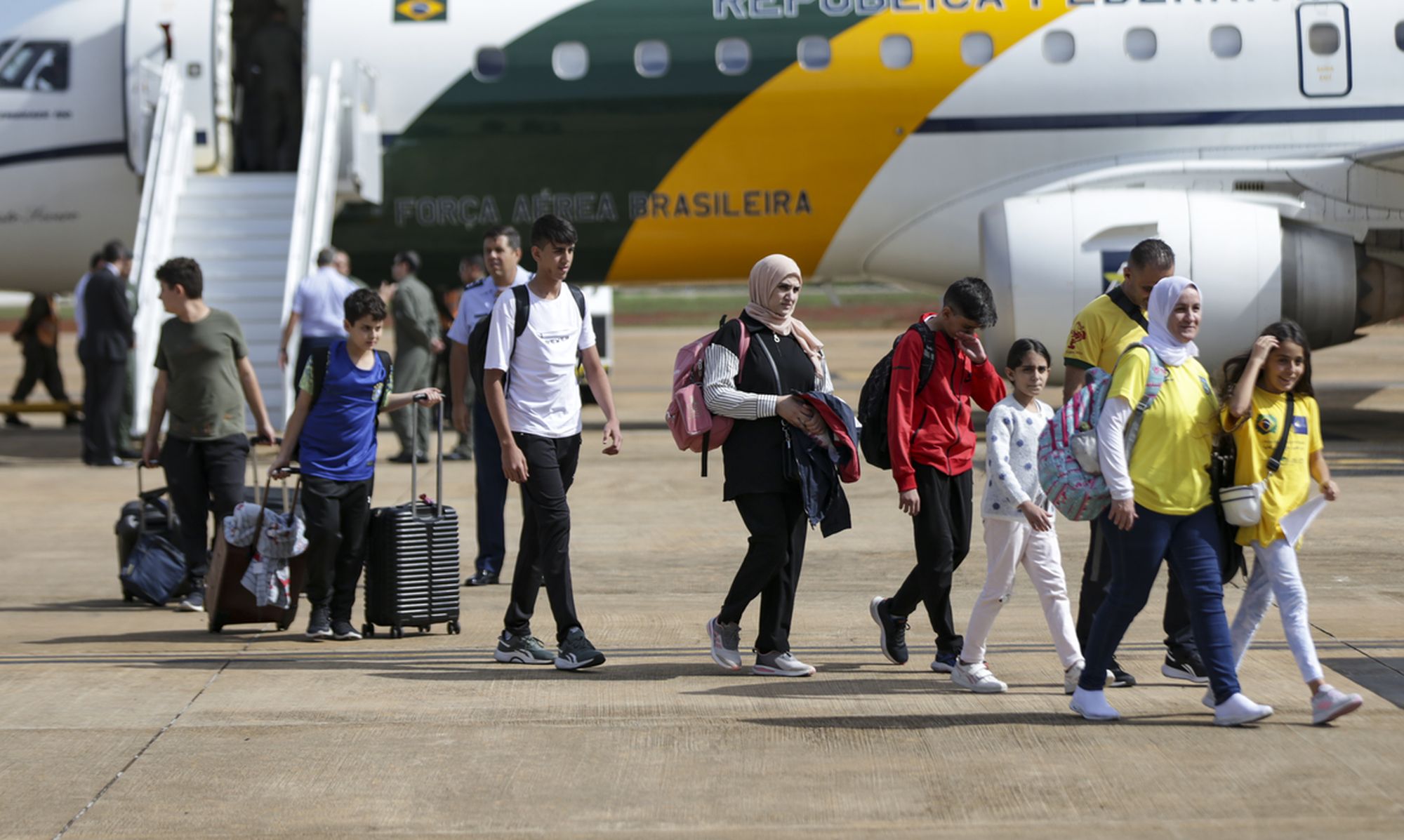For decades, the Palestinian people have been forced to flee their territories due to Israeli occupation and colonization since the creation of the state of Israel in 1948. The United Nations Relief and Works Agency for Palestine Refugees (UNRWA) estimates that 6 million people depend on its services in the Palestinian territories of the Gaza Strip and the West Bank, as well as in neighboring Lebanon, Syria, and Jordan.
According to experts and representatives of the Palestinian community in Brazil, this does not come as a result of one-off conflicts, nor is it a thing of the past. They draw attention to the existence of an apartheid regime in the region.
The tension between Israel and Palestine, which has been going on for over 70 years, involves politics, land, and religion, given that the area is sacred to Judaism, Islam, and Christianity.
In addition to refugee camps in the Middle East, Palestinians have migrated to various parts of the world, Brazil among them. An estimated 60 thousand Palestinian immigrants and refugees, including their descendants, live in the country, most of them in São Paulo, as per the Arab–Palestinian Federation of Brazil (Fepal).
Such is the case of Palestinian-Brazilian journalist Soraya Misleh, coordinator of the Front in Defense of the Palestinian People. She is the daughter of a survivor of the Nakba—an Arabic word that refers to the exodus of Palestinians from the areas that came to be Israel.
Her father was 13 when he left the village where he lived, along with some 800 thousand Palestinians expelled from their land.
“My father was a refugee who spent his whole life dreaming of returning, like so many others. As many as six million people live in refugee camps, not to mention thousands more in the Diaspora. He died five months ago, aged 88. He used to say, ‘sweetheart, if I step on my land and die, I’ll die a happy man,’” she recounted.
She was sad to say her father was never able to go back to Palestine. “He didn’t even have the right to set foot on his land and die happy. This is part of the Palestinian tragedy that’s still going on to this day. What we’re asking for is help,” she said.
Aline Baker’s grandfather on her mother’s side also fled Palestine in the late 50s, when he was about 20 years old. He came alone and could not speak Portuguese. With the help of his relatives, he started selling clothes door-to-door and began to learn the language. Then, he got married and settled permanently in Brazil.
Baker said her family still keeps in touch with relatives in Palestine, even after her grandfather’s death. “Contact between us was never interrupted. We kept writing each other back then. And he’d go back there from time to time to visit, taking my grandmother and my mother with him,” she said.
Regarding the war, Baker said that not a single citizen in Palestine has been free from the consequences of the conflict. “There isn’t a citizen who doesn’t have someone [in their family] who has been imprisoned or murdered, by either colonists or soldiers.”
Expulsion
International Law Professor João Amorim, from the Federal University of São Paulo (Unifesp), argued that the continuous expulsion of Palestinians from their territory started even before the creation of the state of Israel, with the formation of Jewish militias, including those resisting the British Mandate for Palestine. With the Nakba, the process was aggravated, and the
forced migration happened at a large scale.
“Imagine being forced to leave your home immediately, with nothing but the clothes on your body, and flee to another country, on foot or by car, with what little you have. The feeling of banishment stays with refugees forever. They have been forced to leave the place where they have their history and their loved ones. The loss is immense. They didn’t want to be where they are or in the conditions they find themselves in,” Professor Amorim said, pointing out that Israel has plans to completely expel Arabs and Palestinians from the region.
The Israeli government argues it has the right and duty to defend itself against attacks, such as the one launched on October 7. The Israelis claim the Hamas group, which has controlled the Gaza Strip for more than a decade, plans to destroy the country, which has an obligation to protect its citizens.
When conflicts meet
Another reality facing refugees can be seen when they are forced to go to countries that are also experiencing conflicts, such as Syria. Unable to stay, they have to be relocated yet again.
Father Marcelo Maróstica Quadro, deputy director of Cáritas Arquidiocesana de São Paulo, an organization that provides shelter in Brazil, pointed out that some of the Palestinians in the country have been registered as Syrians, but are actually already displaced Palestinians.
“In Brazil, the number of Palestinians must be much higher, because of the underreporting. These are Palestinians who were in another country. It’s complex, because of issues linked to the recognition of the Palestinian state,” he declared.
Fepal head Ualid Rabah is the son of Palestinian refugees who came to Brazil in the 60s. “We were expelled from the [territory] that became Israel. In 78 percent of the land stolen from us, 88 percent of us have been expelled. We come from a land that’s under occupation—in the West Bank, Gaza, and East Jerusalem,” he said.
Rabah fears that the scale of the violence in the current conflict might spell the extermination of his people. “We come from a region that stands on rubble and corpses, a region where 22 Palestinians die for every Israeli, a region under an apartheid regime currently experiencing this slaughter,” he declared.
An open-air prison
Professor Amorim noted that the Gaza Strip is considered by the UN to be the world’s largest open-air prison. Since the blockade imposed by Israel in 2007, the region has access to energy and water for a mere five hours a day, jobs are also limited, and residents cannot come and go as they please, he added.
Rabah said that the siege has even prevented Palestinians from leaving the conflict zone. “The process of making Gaza uninhabitable is aimed at removing the Palestinians from there little by little, so that the Palestinians no longer live on their land,” he said.
Since the beginning of the conflict, the Brazilian government has been working to remove Brazilians who are in Gaza. Around 30 Brazilians and their families are being assisted by the Brazilian representation in Ramallah, in the West Bank, and are awaiting the opening of the border with Egypt.
The situation is alarming because, despite the Embassy sending money, finding water and food is difficult. The Brazilian nationals and their relatives are staying in houses rented by the Brazilian government.
ABr






